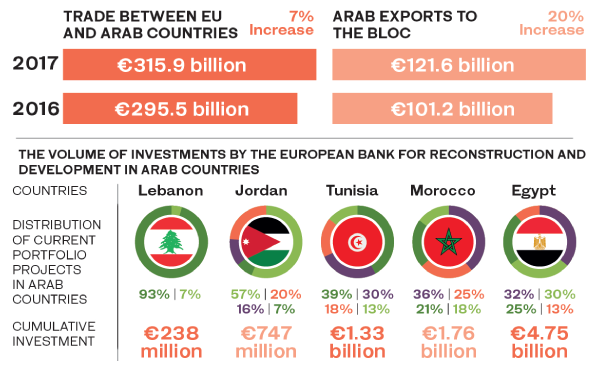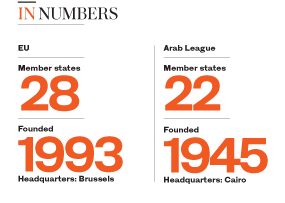ISTANBUL/DAMASCUS: Negotiators are zeroing in on a potential deal to resolve one of the most explosive questions looming over Syria’s future: the fate of Kurdish forces that the US considers key allies against Daesh but neighboring Turkiye regards as a national security threat.
Diplomatic and military negotiators from the United States, Turkiye, Syria and the Kurdish-led Syrian Democratic Forces (SDF) are showing more flexibility and patience than their public statements suggest, a dozen sources told Reuters, including five directly involved in the intensive web of discussions in recent weeks.
This could set the stage for an accord in the coming months that would see some Kurdish fighters leave Syria’s restive northeast and others brought under the authority of the new defense ministry, six of the sources said.
However, many thorny issues need to be resolved, they said. These include how to integrate the SDF alliance’s well-armed and trained fighters into Syria’s security framework and administer territory under their control, which includes key oil and wheat fields.
In an interview with Saudi Arabia’s Asharq News channel on Tuesday, SDF commander Mazloum Abdi said the alliance’s “basic demand” is for decentralized administration — a potential challenge to Syria’s new leadership, which wants to bring all of the country back under the government’s authority after ousting Bashar Assad last month.
Abdi indicated that the SDF has no intention of dissolving, saying it was open to linking with the defense ministry and operating according to its rules, but as “a military bloc.”
Syria’s new defense minister, Murhaf Abu Qasra, rejected that approach in an interview with Reuters on Sunday, saying the suggestion that the SDF remain one bloc “is not right.”
The former rebels now in power in Damascus have said they want all armed groups to integrate into Syria’s official forces, under a unified command. The SDF, when asked for comment, referred Reuters to its commander’s interview.
How much autonomy Kurdish factions retain likely hinges on whether incoming US president Donald Trump continues Washington’s longtime support of its Kurdish allies, according to diplomats and officials on all sides.
Trump has not spoken publicly about his intentions, including his plans for some 2,000 US troops stationed in Syria. A Trump representative did not comment.
Any deal also depends on whether Turkish President Tayyip Erdogan holds off on a threatened military offensive against the People’s Protection Units (YPG), the Kurdish militia that spearheads the SDF alliance.
Ankara views them as an extension of the Kurdistan Workers Party (PKK), which has been waging an insurgency against the Turkish state since 1984 and is deemed a terrorist group by both Turkiye and the US
Turkish Foreign Minister Hakan Fidan said this month that Syria’s new authorities “should be given an opportunity to ... end the occupation and terror the YPG created,” but he did not say how long Ankara would wait for it to disarm before launching an incursion.
A Turkish Foreign Ministry source said disarming armed groups and the departure of “foreign terrorist fighters” were essential for Syria’s stability and territorial integrity, so the sooner this happens the better.
“We are voicing this expectation of ours in the strongest terms during our contacts with both the United States and the new administration in Damascus,” the source said.
INTENSIVE TALKS
US and Turkish officials have been holding “very intensive” discussions since rebels led by Hayat Tahrir Al-Sham (HTS), a former Al-Qaeda affiliate, launched a lightning offensive from their northwestern stronghold that deposed Assad on Dec. 8, a senior US diplomat told Reuters.
The two countries share a “common view of where things should end up,” including a belief that all foreign fighters should exit Syrian territory, the diplomat said, noting Turkish negotiators “have a very high sense of urgency” to settle things.
However, the diplomat, who like some other sources requested anonymity to discuss sensitive negotiations, said the talks were “hugely complex” and would take time.
Parallel talks are taking place between the US and both the SDF and HTS, Turkiye and HTS, and the SDF and HTS, officials from all sides say.
Part of a stateless ethnic group straddling Iraq, Iran, Turkiye, Armenia and Syria, Kurds had been among the few winners of the Syrian conflict, gaining control over Arab-majority areas as the US partnered with them in the campaign against Daesh. They now hold nearly a quarter of the country.
But Assad’s fall has left Syrian Kurdish factions on the back foot, with Turkiye-backed armed groups gaining ground in the northeast and the country’s new rulers in Damascus friendly with Ankara.
Turkiye, which provided direct support to some rebel groups against Assad, has emerged as one of the most influential power brokers in Syria since his fall. Like the US, it has designated HTS a terrorist group because of its Al-Qaeda past, but Ankara is believed to have significant sway over the group.
Officials on all sides worry that failure to reach a ceasefire and longer-term political accord in the northeast could destabilize Syria as it seeks to recover from a 13-year civil war that killed hundreds of thousands, displaced millions and drew in countries including Russia, Iran and Israel.
Dozens of people in northern Syria have been reported killed since December in clashes between the Kurdish-led SDF and Turkiye’s allies, and in cross-border Turkish airstrikes.
Failure to resolve the fate of Kurdish factions in Syria could also undermine nascent efforts to end the PKK’s insurgency in Turkiye.
The United Nations has warned of “dramatic consequences” for Syria and the region if a political solution is not found in the northeast.
POTENTIAL TRADE-OFFS
US support for the SDF has been a source of tension with its NATO ally, Turkiye.
Washington views the SDF as a key partner in countering Daesh, which Secretary of State Antony Blinken has warned will try to use this period to re-establish capabilities in Syria. The SDF is still guarding tens of thousands of detainees linked to the group.
Erdogan said on Wednesday that Turkiye has the power to “crush” all terrorists in Syria, including Daesh and Kurdish militants.
Turkiye wants the management of camps and prisons where Daesh detainees are being held transferred to Syria’s new rulers and has offered to help them. It has also demanded that the SDF expel all foreign fighters and senior PKK members from its territory and disarm the remaining members in a way it can verify.
Abdi, the SDF commander, has shown flexibility regarding some Turkish demands, telling Reuters last month that its foreign fighters, including PKK members, would leave Syria if Turkiye agrees to a ceasefire.
The PKK said in a statement to Reuters on Thursday that it would agree to leave if the SDF maintains control of the northeast or a significant role in joint leadership.
Such assurances are unlikely to satisfy Ankara at a time when the SDF is “trying to stay alive and autonomous” in Syria, Omer Onhon, Turkiye’s last ambassador to Damascus, told Reuters.
In Ankara on Wednesday, Syrian Foreign Minister Asaad Hassan Al-Shibani said the extensive US-backed SDF presence was no longer justified, and the new administration would not allow Syrian land to be a source of threats to Turkiye. Standing next to him, his Turkish counterpart, Fidan, said it was time to put anti-terror pledges into practice.
Abdi told Asharq News that he has met with Syria’s de facto leader, Ahmed Al-Sharaa, and the two sides agreed to set up a joint military committee to decide how the SDF would integrate with the defense ministry. He described the meeting with Sharaa, who heads HTS, as positive.
Abu Qasra, the defense minister, accused SDF leaders on Sunday of “procrastinating” on the issue, saying “consolidation of all areas under the new administration ... is a right of the Syrian state.”
The new leadership believes that allowing SDF fighters to continue operating as a bloc would “risk destabilization, including a coup,” a ministry official told Reuters.
Abdi argued that a decentralized administration would not threaten Syria’s unity, saying the SDF is not demanding the kind of federalism introduced in Iraq, where Kurds have their own regional government.
Some Syrian officials and diplomats say the SDF will likely need to relinquish control of significant territory and oil revenues, gained during the war, as part of any political settlement.
In return, Kurdish factions could be granted protections for their language and culture within a decentralized political structure, said Bassam Al-Kuwatli, president of the small Syrian Liberal Party, which supports minority rights but is not involved in the talks.
A senior Syrian Kurdish source acknowledged that some such trade-offs would likely be needed but did not elaborate.
Abdi told Asharq News that the SDF was open to handing over responsibility for oil resources to the new administration, provided the wealth was distributed fairly to all provinces.
Washington has called for a “managed transition” of the SDF’s role.
The US diplomat said Assad’s ouster opens the door for Washington to eventually consider withdrawing its troops from Syria, though much depends on whether trusted forces like its Kurdish allies remain engaged in efforts to counter any Daesh resurgence.
Trump’s return to the White House on Monday has raised hopes in Turkiye of a favorable deal, given the rapport he established with Erdogan during his first term.
Trump has spoken approvingly about Erdogan’s role in Syria, calling him a “very smart guy,” and said Turkiye would “hold the key” to what happens there.
“The Americans won’t abandon (the SDF),” said Onhon, Turkiye’s former ambassador. “But the arrival of someone as unpredictable as Trump must worry them in a way too.”






























